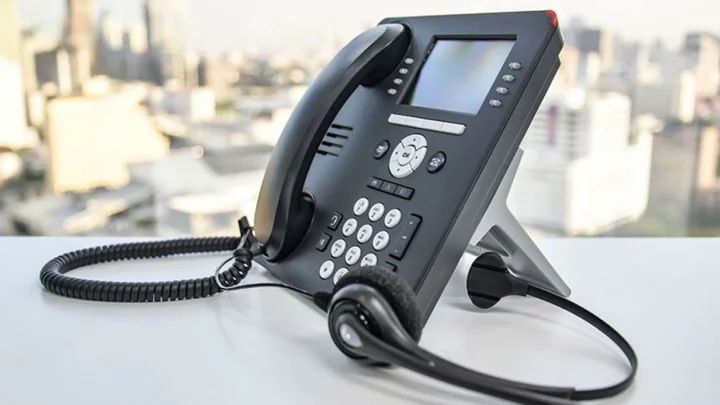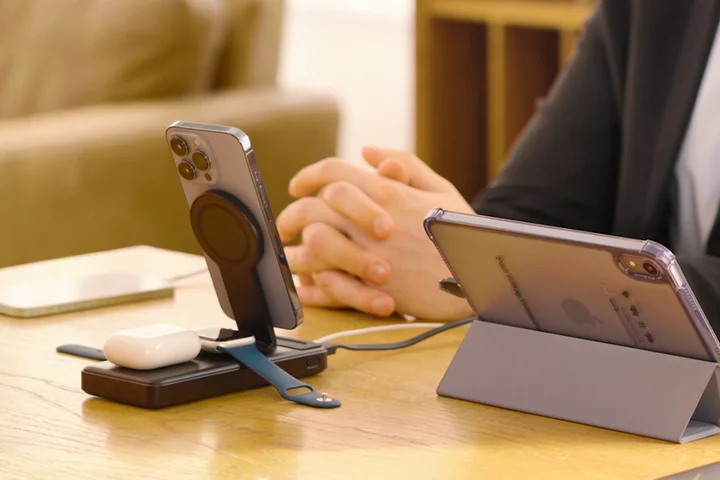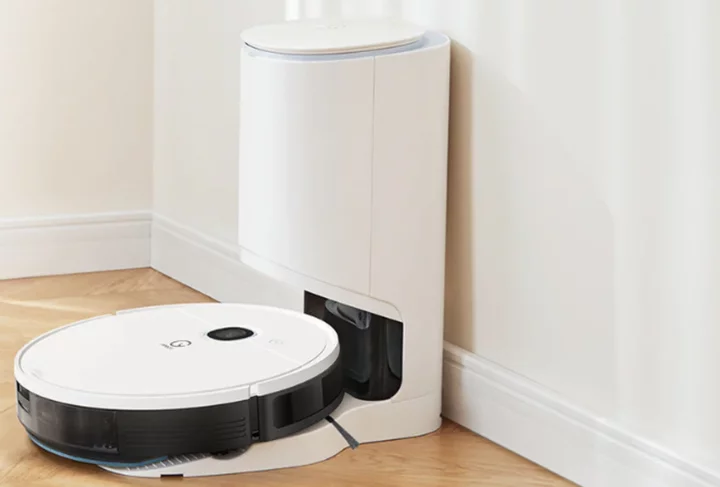Today, business telephony is virtually synonymous with voice over IP (VoIP), a type of phone service that runs over the internet rather than analog phone lines. The casual user would probably never know that their phone is running over a VoIP system, but these services' advantages include improved sound quality, lower cost, and a host of add-on features. Today's cloud-based VoIP services bundle voice calling with video conferencing, instant messaging, SMS support, and other useful tools. What's more, most can integrate with the other software running in your business, such as your CRM system. Solutions that integrate multiple channels in this way are sometimes referred to as unified communications as a service (UCaaS).
If you're in the market for a new VoIP system, you have many factors to weigh, of which cost is just one. Do you need to supply phone service to remote workers, or are you operating a call center? Are you in a highly regulated industry that requires extra security? We test and rate leading VoIP solutions with these and other questions in mind. Below are our top picks, followed by a buying tips to help you sort out your options.
What Is a VoIP Phone System?
Traditional landline phones are a form of analog telephony. VoIP, on the other hand, brings voice calling to the digital age. VoIP systems convert voice calls into network packets and transmit them over the internet or other IP-based networks. Most also include a bridge to traditional phone systems, so the people you call don't need to use VoIP themselves (nor do the people who call you). In addition, they typically emulate the functions of traditional PBX (private branch exchange) business phone systems, such as conference calling, call routing, and call monitoring.
How Much Does a Small Business VoIP System Cost?
Today's small business VoIP systems are billed on a subscription basis. You'll be charged based on the number of users (phone extensions) you need, on either a monthly or yearly basis. Some vendors require you to commit to a specific term, while others don't. That said, you'll usually receive a discount by paying for a full year of service in advance.
How much a given service costs per month can range widely. Most offer multiple pricing tiers based on factors like the feature package, the number of users you need to support, and how much you expect to use the service. Among the products we tested, pricing ranged from $15 per user per month at the low end, all the way up to $65 per user per month for an advanced, enterprise-grade product. Most small businesses can expect to pay about $20 per user per month.
What's the Advantage of a VoIP Phone System?
VoIP supplanted traditional PBX phone systems because it is less expensive but far more versatile. Even today's residential VoIP offerings include features far beyond those of conventional telephone systems. In addition to voice calling, most modern VoIP systems integrate other channels and features, including conference calls, call recording, mobile communications, video conferencing, team collaboration, and even social media, earning them the classification of unified communications-as-a-service (UCaaS)—we'll discuss these in depth, below.
These days, most VoIP solutions have evolved into managed, cloud-based services—and with good reason. Moving to the cloud helps reduce costs, increase reliability, and lift the management burden off of your organization's staff, making cloud VoIP systems a clear winner.
How to Choose a Business VoIP System
Whether this is your first time switching to business VoIP or you're upgrading an existing system, the sheer number of options can be dizzying. It's important to remember that while we've evaluated the VoIP systems in this roundup based on factors like features, ease of use, and cost, the solution that's right for your business might not necessarily be the one that looks best on paper.
Your first order of business should be to consider just how your company plans—or needs—to use its phones. For example, if your goal is to upgrade an existing PBX, replacing it entirely might not be a viable option, if only because some parts of the system can't be easily changed over to softphones or even desktop VoIP handsets.
For example, suppose you're operating a heavy manufacturing environment with outdoor activities, such as a steel fabrication yard or a landscaping company. In that case, your rugged old outdoor phones may be just what you need there, and VoIP should only be deployed for office and remote workers.
Even for less extreme environments, you should think about the features you'll need—now and for the future—as well as the ones you don't. Without careful planning, it's easy to find yourself paying for capabilities you'll never use, not to mention unnecessary complexity that makes your phone system hard to manage.
One important step in this process is to sit down with all of the stakeholders who will be affected by your eventual decision. Naturally, this includes the IT staff and the data security folks, since your voice calls will now be data communications. However, department heads and employees who use the system to get work done should also have their say, especially those whose work drives revenue and engages customers.
You don't want to hamstring anyone's activities by skimping on features, but you also don't want to overwhelm them with options they don't understand. The best VoIP system for your business will always be one that doesn't just meet your employees' needs; your workers should feel comfortable using it, too.
What Are Softphones?
Traditional VoIP systems use dedicated VoIP phone equipment that sits on your desk and establishes calls via the Session Initiation Protocol (SIP). But VoIP has come a long way since these humble beginnings.
One of the most important innovations that modern VoIP systems bring to business communications is softphones. In a nutshell, a softphone is an app that replicates all of the features of a traditional, desktop business phone, and often much more. What you lose in plastic hardware, you gain in functionality, including video conferencing and text chat.
At their most basic, softphones let you use the speakers and microphone on your PC, laptop, or other devices to mimic the capabilities of a desktop phone. They also help convey many additional VoIP advantages. Their screen-based interfaces make it easier to switch between communications channels, even mid-call, and they also help the system integrate with other software, such as help desk and customer relationship management (CRM) systems.
Mobility adds an additional wrinkle. These days, most workers are accustomed to taking calls on the go. However, using a mobile phone's built-in calling features means you sacrifice VoIP's productivity-enhancing features, such as call monitoring, logging, transferring, and integrations with other apps. Many VoIP systems offer softphone apps that run on Android and iOS devices, and in some cases, these apps have full feature parity with their desktop versions. You'll want to investigate these options thoroughly if your staff includes a significant number of road warriors.
Can My Network Handle VoIP?
Networking issues have always been a primary concern for any VoIP implementation. VoIP traffic is much more sensitive to network bumps and potholes than most general office traffic, such as web browsing. When a VoIP system is starved for bandwidth, that translates to garbled conversations, difficulty connecting, or dropped and lost calls.
Further complicating matters is the ad hoc design of many modern small-business networks. Chances are your small office network might consist of a few wireless routers, rather than dedicated Ethernet jacks at workers' desks, making monitoring and maintaining traffic quality more difficult.
5 Things to Think About When Choosing a Business Phone SystemIn the wake of the global COVID-19 pandemic, at least some of your staff are almost certainly working from home, and there's a good chance that remote work will become a permanent part of modern employment, particularly for small to midsize businesses. Your internal IT staff will have little to no control over these staffers' home networks.
Finally, the business VoIP systems in this roundup are all managed cloud services, rather than on-premises products that mimic a traditional PBX. We think that's a good thing: Cloud VoIP services can potentially offer greater reliability, easier management, and more features, all at a lower cost than first-generation VoIP systems. But they also increase your reliance on the public internet for the most basic distance communication needs.
The upshot of all this is that, unlike your local LAN, there's little your company can do to control networking conditions on the public internet. Managing your connectivity is almost entirely the province of your network provider—or multiple providers, if your workforce is geographically dispersed. Often, the best you can do is to hope for the best. Check out our roundup of the fastest internet service providers (ISP) to see which might be able to offer you the most bandwidth, and consider subsidizing high-speed connections for your remote workers.
Does VoIP Work With Alarm Systems?
Another issue worth considering is whether your business currently relies on alarm systems, such as perimeter alarms or motion detectors. Many of these connect to alarm monitoring services via traditional analog phone lines. You may be able to switch these lines to VoIP, but use caution. The digital codecs used to encode voice calls can interfere with electronic signaling devices, such as analog modems, fax machines, and alarm monitoring systems, which have different sound-quality requirements. Consult with your alarm company to see whether they keep a list of VoIP providers they have pre-vetted for this purpose.
Sustained power is another factor to consider. Analog phone lines operate on power provided by the telephone company, which is separate from the main energy grid. VoIP lines, on the other hand, need AC power, just like any other digital device. You'll want to make sure you have backup power available for your network routers, VoIP servers, and any other hardware your VoIP system requires, or you risk having your alarm monitoring service fail in the event of a power outage.
What Is UCaaS?
So far, we've talked about replacing traditional PBX systems with VoIP, but simply switching from analog voice to digital offers only marginal cost savings. Instead, the real value of modern VoIP comes from flexibility and integration features that only software-based communications can bring, which takes us to the fast-evolving field of unified communications-as-a-service (UCaaS).
The features offered in any particular UCaaS solution vary widely from vendor to vendor. Still, most include options for video conferencing, shared meeting and online collaboration tools, integrated faxing, and mobile VoIP integration.
UCaaS Projected Market Growth in US Through 2024However, where UCaaS really starts to become a game-changer is when it lets your VoIP system integrate with other systems used within your business. For example, it might integrate with your CRM system, letting it recognize a customer's phone number or some other identifier and automatically pull up the customer's record for the technician or salesperson answering the call. It could even alert a manager to monitor the call if it's a critical client.
Other popular UCaaS integrations include help desk software and marketing automation tools. Some vendors even offer industry-specific features for certain verticals, such as healthcare. These backend software integrations explain the significant growth in the UCaaS market over the last several years. The concept is constantly evolving to include more communication and collaboration technologies.
What's Next for Business VoIP?
VoIP makes the most sense for the vast majority of SMBs, and not just because the costs are lower; VoIP is the only way to keep up with evolving communication trends. Software integration lies at the heart of VoIP and UCaaS, so you can't make a purchasing decision without thinking about the future.
On the one hand, consider each vendor carefully to see what they've done over the last half-decade in product development and keeping up with VoIP and UCaaS trends. On the other hand, think about what you'll need in the next five years.
At PCMag, we've noticed three trends that almost all vendors mentioned as essential to their customers over the last year. That means they'll be crucial capabilities those vendors will want to add to their platforms in 2022:
Network Mobility. Although some VoIP services still offer mobile handsets, these devices seem to be on the downslope. After all, if talking while walking is your goal, why carry a clunky handset when you can speak on your smartphone? Seamless voice switchover based on geofencing is one approach. With it, your smartphone detects that it's inside your company's wireless network and seamlessly engages your VoIP client over Wi-Fi, not your cell service. You'll make and receive calls from your calling plan, as well as your business's VoIP service. This generally goes beyond simple calls and includes texts, voicemail-to-email, and collaborative online meetings.
5G Integration. However, a little further down the road is ubiquitous 5G. When that happens, several VoIP vendors will connect their services to 5G. Workers will then be able to access their business VoIP service wherever they are and across any device as long as it's 5G compatible. Although some vendors do this with current mobile technology, 4G's latency limits often deliver a sub-optimal experience. This applies to simple voice traffic, as well as video and collaboration. 5G is the first mobile service that promises the bandwidth necessary to make true mobile UC a reality.
Artificial intelligence (AI). If your current phone system uses an automated menu to help route customer calls, or even if it extends its tendrils to your website's e-commerce features, expect UCaaS vendors to pitch you on artificial intelligence. In addition to the chatbot features we discussed earlier, your vendor can also use AI to detect security issues (see below). It can also work on the reporting and analysis side, so you'll have a much more granular understanding of call and network quality, call volume, and the apps most affected by your VoIP service.
These trends will likely become important selling points in most VoIP vendor-customer pitches over the next several years. Although that's great, be sure to fully understand what's being offered and how the vendor will deliver it. For example, is a 5G implementation truly standards-based, or are there some proprietary hardware or software components? How will new security measures affect overall voice performance, and does the vendor fully support the changing security requirements for industry regulations like HIPAA and Sox?
If all this seems like a lot to ponder, remember that it's well worth the effort. Just about anything you can picture a business needing from a phone or collaboration system can be delivered by a hosted VoIP solution at a more affordable price than purchasing and maintaining your own on-premises PBX. It's just a matter of selecting the right solution for your business.
Want to learn more about how to supercharge your business communications? Learn how to Future-Proof Your Business VoIP for Hybrid Work, and check out the Best Video Conferencing Software based on PCMag's independent tests.









